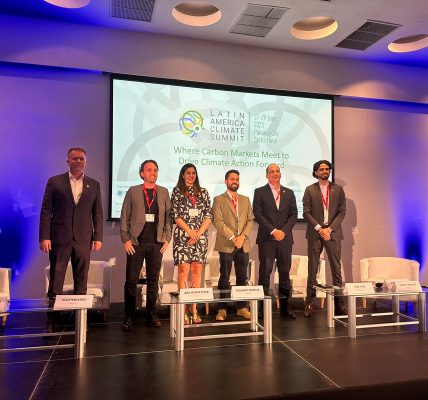The ICVCM invited to co-create a definitive and consistent threshold for high-quality carbon credits
ALLCOT, in collaboration the Carbon Markets Fairness Foundation (CMFF), Conservation International – Colombia, and the West African Alliance on Carbon Markets and Climate Finance, has expressed and submitted its insights to the Integrity Council for the Voluntary Carbon Market (ICVCM) public consultation on the draft Core Carbon Principles (CCPs), Assessment Framework and Assessment Procedure.
With its international scope and expertise in the carbon markets since 2009, ALLCOT in coalition with CMFF, CI Colombia and the West African Alliance on Carbon Markets and Climate Finance proposes to the ICVCM to “go beyond widely established best industry practices on social and environmental safeguards”, as currently included in the CCPs (Core Carbon Principles), by evolving the traditional concepts of “carbon project” and “consultation” to unlock the full potential of the Voluntary Carbon Market (VCM).
This coalition seeks the integration, by the ICVCM, of key elements that are essential for leveraging the quality of the VCM: fairness, equity, and integrity. These concepts relate to six guiding principles: Ownership of Local Communities and Indigenous Peoples, Carbon Pricing, Rapid Phase Out of Fossil Fuels, Corresponding Adjustments, Integrating smaller-scale projects, Biodiversity, and Attributes.
This collaborative submission includes, among others, the recommendation to create two new CCPs: one requiring “full ownership” of projects for Local Communities and Indigenous Peoples (LCIPs); and an additional one requiring fairness in the carbon pricing by carbon-crediting programs. With the aim of accelerating climate action, a fair price of carbon will allow projects to generate sufficient revenue to invest in additional mitigation and adaptation measures, promoting self-sustaining investments. The VCM will not succeed by being exclusive. Integrity can only be based on inclusion, therefore, the VCM requires the “integration” (inclusion) of all scales, including smaller-scale projects.
Only by taking into account the proposed framework, the VCM could aim at high-quality carbon credit taking the system to the next level, where no one is left behind and any action taken drives a real change towards our needed environment.
We invite you to read the complete submission here.
About ALLCOT
Since 2009, ALLCOT provides innovative solutions to combat climate change and promote sustainability through project development, carbon markets, and advisory services. ALLCOT’s vision is to lead and accelerate the global transition towards a climate-neutral society by 2050. ALLCOT’s unique approach is based on Article 6 of the Paris Agreement, its linkage to the SDGs, non-market approaches, and other market mechanisms.
About Carbon Markets Fairness Foundation
The Fair Carbon Markets Initiative aims to foster the emergence of a Carbon Market under a scheme of Fairness and Transparency that encourages active engagement of local communities, environmental integrity, and equitable distribution of benefits.
It is a strategic partnership forged among regions, governments, private sector, organizations (NGO/IGO) mostly key players from the Global South, encouraged by the opportunity to position themselves as environmental creditors and redefine a new path in carbon markets.
About Conservation International
Conservation International works to highlight and conserve the benefits that nature provides to humanity. Since its inception, it seeks to help protect more than 6 million square kilometres (2.3 million square miles) of land and sea in more than 70 countries. It is now in 29 countries and has 2,000 partners around the world, with a truly global reach.
About West African Alliance on Carbon Markets and Climate Finance
The West African Alliance on Carbon Markets and Climate Finance aims at strengthening opportunities for West African countries to actively participate in future carbon markets. Additionally, its goal is to enhance the long-term position of West African countries to participate in international carbon markets and improved access to result-based climate finance for NDC implementation.





